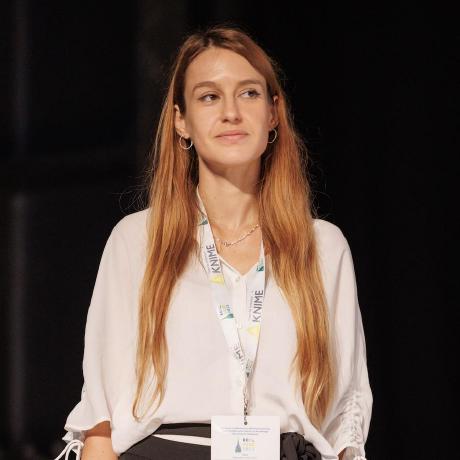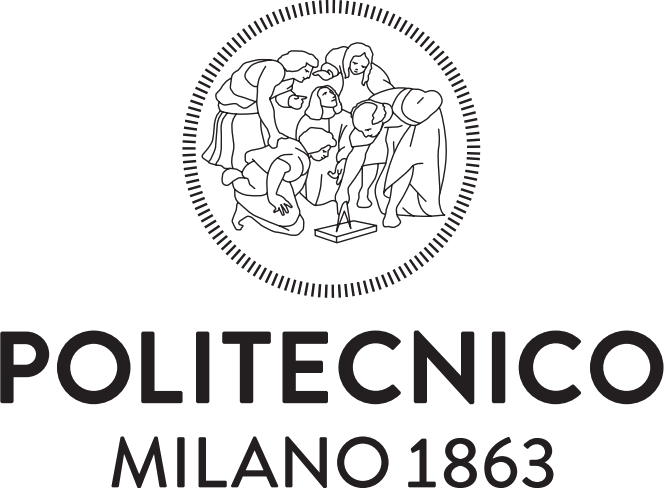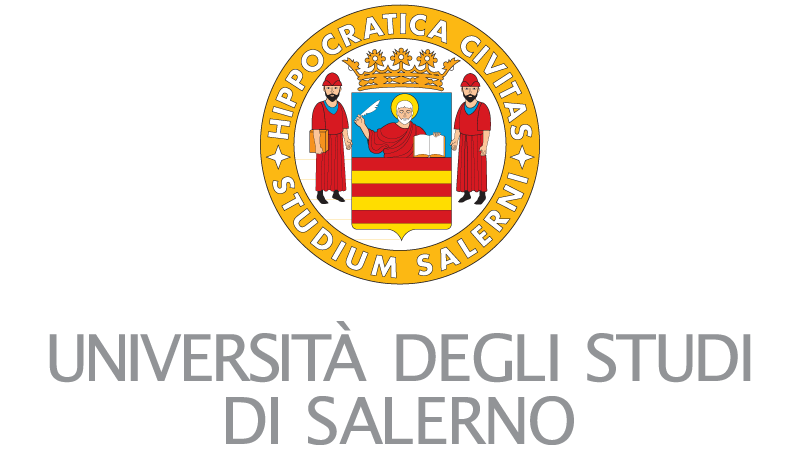
Workshop on
Risks and Unintended Harms of Generative AI Systems
📍 Turin, Italy
🤝 Held as part of the 4th Italian Conference on Big Data and Data Science (ITADATA2025)
📅 11 September 2025
About the workshop
As generative AI systems such as large language models and synthetic media generators become deeply integrated into big data ecosystems—spanning journalism, governance, healthcare, cybersecurity, and other critical sectors—, they introduce complex challenges and critical questions around trust, governance, and harm mitigation.
This half-day workshop addresses the intersection of generative AI and big data from both technical and ethical perspectives. This workshop aims to bring together researchers, practitioners, and policymakers to discuss unintended consequences of generative AI, explore real-world failure scenarios, and collaboratively identify solutions.
The workshop includes a keynote and/or an interactive panel with audience Q&A, and lightning talks selected through an open call.
We invite lightning talk submissions that bring forward original insights, early-stage ideas, case studies, and provocations. The workshop will foster interactive discussion and interdisciplinary exchange, with the goal of shaping a research and policy agenda for responsible generative AI integration in data science and big data environments.
Themes and topics
We will examine the ways in which generative technologies may disrupt core components of the data lifecycle—from collection to reporting—and investigate emerging approaches to mitigate their potential harms.
Topics of interest include, but are not limited to:
- Failures, biases, and unintended consequences in generative AI models.
- Data assurance and trust in generative content.
- Transparency, red-teaming, and risk mitigation techniques.
- Impact on data protection, provenance, and auditability.
- Policy and regulatory responses to synthetic media and AI-generated content.
- Detection and prevention of malicious uses of generative AI (e.g., deepfakes, fraud, misinformation).
- Governance models for safe and ethical deployment of generative systems.
- Trustworthiness and interpretability in AI-enhanced big data applications.
Submissions
SUBMISSION GUIDELINES
Important dates
- Paper submission
due:
July 28, 2025 AoE August 7, 2025 AoE (Extended).
-
Notification: August 16, 2025 AoE.
-
Camera-ready: September 1, 2025 AoE.
What to submit
We welcome the following types of submissions:
-
Regular papers (at least 5 pages, up to 12 pages, excluding references):
novel original presenting complete and mature work that has not been published or submitted
elsewhere.
-
Short papers (at least 5 pages, up to 8 pages, excluding references): novel, original
research presenting preliminary results or ongoing work that has not been published or
submitted elsewhere.
-
Extended abstracts (at least 5 pages, excluding references): ongoing projects, new
ideas, or early-stage results.
-
Non-archival papers: relevant work recently accepted or currently
submitted at other venues, including abstracts, discussion papers, critical reviews of
recently published work, position papers, and presentations of ongoing or incomplete research.
How to submit
-
Formatting and submission:
Papers must be written in English and formatted using the CEURART style required for publication with
CEUR-WS (You can find the Overleaf LaTeX template here).
Submissions must be uploaded in PDF format through the Microsoft CMT system at https://cmt3.research.microsoft.com/ITADATA2025
by selecting the option "Workshop: Risks and Unintended Harms of Generative AI Systems" when creating
a new submission.
-
Publication:
Accepted papers will be published in an open-access volume of the CEUR Proceedings. The proceedings
will include only original contributions (regular papers, short papers, and extended abstracts of at
least 5 pages). Non-archival submissions can present relevant work recently accepted or currently
submitted at other venues. At least one author of each accepted paper must register for the workshop
and present the paper.
Rules for Paper Selection
All submitted papers will undergo a peer-review process. Each submission will be evaluated by at least two independent reviewers,
selected from the Program Committee or invited experts. Reviews will assess relevance to the workshop topics, scientific quality,
originality, clarity of presentation, and potential impact. Based on the reviewers' evaluations and discussion among the Program
Committee, the workshop chairs will make the final acceptance decisions. Only accepted papers presented at the workshop will be
included in the CEUR-WS proceedings. We are committed to ensuring a fair, transparent, and high-quality selection process.
- Paper submission due: July 28, 2025 AoE August 7, 2025 AoE (Extended).
- Notification: August 16, 2025 AoE.
- Camera-ready: September 1, 2025 AoE.
- Regular papers (at least 5 pages, up to 12 pages, excluding references): novel original presenting complete and mature work that has not been published or submitted elsewhere.
- Short papers (at least 5 pages, up to 8 pages, excluding references): novel, original research presenting preliminary results or ongoing work that has not been published or submitted elsewhere.
- Extended abstracts (at least 5 pages, excluding references): ongoing projects, new ideas, or early-stage results.
- Non-archival papers: relevant work recently accepted or currently submitted at other venues, including abstracts, discussion papers, critical reviews of recently published work, position papers, and presentations of ongoing or incomplete research.
- Formatting and submission: Papers must be written in English and formatted using the CEURART style required for publication with CEUR-WS (You can find the Overleaf LaTeX template here). Submissions must be uploaded in PDF format through the Microsoft CMT system at https://cmt3.research.microsoft.com/ITADATA2025 by selecting the option "Workshop: Risks and Unintended Harms of Generative AI Systems" when creating a new submission.
- Publication: Accepted papers will be published in an open-access volume of the CEUR Proceedings. The proceedings will include only original contributions (regular papers, short papers, and extended abstracts of at least 5 pages). Non-archival submissions can present relevant work recently accepted or currently submitted at other venues. At least one author of each accepted paper must register for the workshop and present the paper.
Program
CHECK OUR PROGRAM
Join us on Sept 11, on day 3 of the ITADATA conference
| Time | Activity | |
|---|---|---|
| 11:00–11:10 | 🌟 | Welcome and Introduction |
| 11:10–12:00 | 🎤 | Keynote: Valerio Basile, University of Turin
Modeling Human Perspectives in Natural Language Abstract: A recent line of research in NLP proposes to never aggregate human annotations [1], but rather to leverage the worth of knowledge found in label variation for building models [2] and evaluating them [3]. This approach is particularly relevant when dealing with highly subjective aspects of natural language such as irony or undesirable language. In this talk, I will present the perspectivist paradigm in NLP, and the results of recent and ongoing research focusing on building perspective-aware predictive models and automatically extract human perspectives from annotated data. I will present language resources developed under the perspectivist paradigm and their application for training or few-shotting models. Finally, I will explore the new set of challenges related to evaluating perspectivist models and how to build benchmarking metrics and tools. [1] The Perspectivist Manifesto. https://pdai.info/ [2] Cabitza et al. AAAI-23. Toward a perspectivist turn in ground truthing for predictive computing [3] Basile et al. 2021. We Need to Consider Disagreement in Evaluation |
| 12:00–13:00 | ⚡ | Paper session (15’ presentation + 5’ Q&A). Moderator: Stefano Cirillo.
|
| 13:00–14:00 | 🍽️ | Lunch break |
| 14:00–14:45 | 👥 | Panel
Title: The risks of AI Moderator: Eliana Pastor Panelists: Amanda Cercas Curry (Researcher at CENTAI), Alessandro Castelnovo (Head of Responsible AI @ Intesa Sanpaolo), Gianluca Bonifazi (Universita' Politecnica delle Marche) |
| 14:45-15:00 | ✨ | Closing Remarks |
Organization
ORGANIZERS

Stefano Cirillo
University of Salerno, Italy
Eliana Pastor
Politecnico di Torino, Italy
Francesco Pierri
Politecnico di Milano, Italy
Serena Tardelli
IIT-CNR, ItalyPROGRAM COMMITTEE
Lorenzo Alvisi, IMT School for Advanced Studies Lucca, Italy
Gianluca Bonifazi, Università Politecnica delle Marche, Italy
Gaetano Cimino, Università degli studi di Salerno, Italy
Francesco Corso, Politecnico di Milano, Italy
Nicolò Fontana, Politecnico di Milano, Italy
Weiwei Jiang, Beijing University of Posts and Telecommunications
Valerio La Gatta, Northwestern University
Luca Luceri, University of Southern California
Lorenzo Mannocci, University of Pisa, Italy
Benedetta Tessa, University of Pisa, Italy
Luca Virgili, Università Politecnica delle Marche, Italy





This event was in part organised as part of the SoBigData.it project (Prot. IR0000013 - Call n. 3264 of 12/28/2021) initiatives aimed at training new users and communities in the usage of the research infrastructure (SoBigData.eu).

